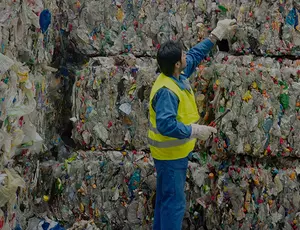Read a snapshot of some of the policy and regulatory updates relevant to the environment in the October - December 2023 quarter across Australia and New Zealand.
Only got 60 secs? Here’s a quick recap
- Australia is establishing its first-ever National Climate Risk Assessment
- Australia is poised to become a green energy superpower – but will it be circular?
- New Zealand votes in the National Party, ending two terms of the Labour Party
- Sustainable packaging on Australia’s national agenda
- More renewables in Australia with expanding Capacity Investment Scheme
- Australia’s second annual Climate Change Statement presented ahead of COP28
Australia's first National Climate Risk Assessment
Australia is establishing its first-ever National Climate Risk Assessment, to identify and evaluate the risks associated with climate change. These risks include increased heat, natural disasters, and intense rainfall. Experts from across the nation gathered in Adelaide in October to prioritise key impacts, including health risks, disruptions to supply chains, and environmental threats. The goal is to ensure Australian communities are better prepared to mitigate and adapt to these climate-related challenges.
Veolia’s position
Australian experts have identified heat impacts on human health, the resilience of buildings to extreme weather, and water management as key challenges as our planet warms – and this too impacts Veolia’s facilities, workers and the communities we service around the country. At our global headquarters, Veolia has modelled the company’s climate-related risks including transition challenges, and they estimate annual financial impacts from 2020 to 2030 range from hundreds of thousands to several million euros. As such, we are doing everything we can to plan for and mitigate these risks. Read more about this in our most recent Veolia ANZ Sustainability Report.
Australia: The green energy superpower
Australia is poised to become a green energy superpower, according to a report by the Joint Standing Committee on Trade and Investment Growth. The report outlines 16 recommendations aimed at strengthening Australia's transition to a green energy leader, including leveraging existing trade and investment structures, promoting value-added manufacturing and exports, and developing a national green energy strategy. The Committee held public hearings and received over 120 written submissions during its inquiry. Chair Steve Georganas MP highlighted the vast opportunities for Australia in the global green economy, emphasising the importance of maximising the country's potential in this sector.
Veolia’s position
As Australia looks forward to a clean economy future, Veolia commends the joint committee for acknowledging the importance of the circular economy in recommendation 12: “allocate funding to support research and commercial opportunities to reuse and recycle products, equipment, and infrastructure in Australia’s transition to a green energy superpower”. With Australia on the cusp of a massive deployment of wind, solar and battery technology, the circularity of this technology is best built into the product now during design and manufacturing, not placed as an afterthought.
New Zealand votes in a new government
In its October 2023 election, New Zealand voted in centre-right National Party leader and former CEO of Air New Zealand Christopher Luxon. This brought to an end the Prime Ministership of Chris Hipkins and the two term Labour Party government. Luxon promised to cut taxes for middle-income earners, tackle inflation, and remove sales taxes on fruit and vegetables. Earlier in the election, the National Party also promised to drive a surge of investment in renewable electricity generation so New Zealand can double its supply of affordable, clean energy and become a lower emissions economy.
Veolia’s position
Veolia congratulates the Luxon-led National Party on their election win and looks forward to working with the new government on supporting New Zealand’s climate and environmental goals. This includes providing world-class, environmentally sustainable water infrastructure and services to communities and future generations of New Zealanders. It is vital that New Zealand’s water systems are future-proofed to meet challenges posed by climate change, with the country becoming increasingly exposed to severe weather events.
Sustainable packaging on Australia's national agenda
In November, Australia's state and territory environment ministers convened in Adelaide and agreed that the federal government will step up as the new regulator of packaging standards. These standards will include setting minimum recycled content requirements and prohibiting harmful chemicals. A national traceability framework was also endorsed to support confidence in the use of recycled materials. Additionally, ministers agreed on a framework to accelerate product stewardship and hold producers accountable for managing waste. Concerns were also noted regarding lithium batteries and safety risks.
Veolia's position
Veolia looks forward to Australia's new national packaging laws supporting investment in domestic recycling infrastructure, reducing waste, and supporting circular economy practices. Creating demand for recycled content will undoubtedly boost recycling rates. While mandatory design standards help establish a minimum level of packaging recyclability, government reforms can go further by including variable fees set to incentivise higher and higher levels of recyclability and recycled content use in packaging production. We also recommend the government consider a fit-for-purpose, nationally consistent regulatory framework for batteries and a mandated, regulated battery product stewardship program, to mitigate the increasing risk being faced by our industry and its workers by battery products.
Expansion of the Capacity Investment Scheme
The Albanese Government, in conjunction with the states, announced in November that it will expand the existing Capacity Investment Scheme (CIS) and the National Energy Transformation Partnership (NETP) to bring online more renewable energy for the nation. This expansion will take the CIS from the current pilot stage to 9 GW of dispatchable capacity and 23 GW of variable capacity nationally – for a total of 32 GW nationally. This is equivalent to around half the current National Electricity Market (NEM) with its nearly 11 million customers.
Veolia’s position
As the biggest energy transition of our lifetimes takes place, Australian households and businesses are demanding affordable and reliable renewable energy. And Veolia is no different – in order to reach our Australian targets of net-zero by 2050, and reduce our scope 1 emissions by 50% by 2032, a clean and reliable domestic electricity grid is vital. At the same time, we are also decarbonising our electricity supply with a proposed $20m investment in solar and commercial battery storage for our own facilities. By underwriting renewable energy generation and storage, the expanded Capacity Investment Scheme helps set the nation up to take advantage of the economic opportunities presented by a net-zero economy.
Climate Change Statement presented ahead of COP28
Australia's minister for climate change and energy, Chris Bowen, presented the government's second annual Climate Change Statement in December ahead of COP28 in Dubai. In the statement the government accepted 39 of the 42 recommendations from the Climate Change Authority, including the need to decrease emissions at a faster rate. Two of these accepted recommendations related to waste: an update to the national waste policy action plan, focusing on increasing the avoidance, recovery, and recycling of organic waste to reduce landfill waste, and requiring landfill gas capture or alternative treatment at landfill sites.
Veolia’s position
Veolia has been engaging with government to ensure Australia continues to make steady progress on reducing waste to landfill and the waste industry’s greenhouse gas emissions. Stronger coordination is needed between federal, state and territory governments on concrete, specific and achievable actions to increase the avoidance, recovery and recycling of organic waste across its lifecycle to reduce organic waste going to landfill, including council-owned landfills. Modelling commissioned by Veolia shows that to meet the national waste plan target of an 80% average recovery rate from all waste streams by 2030, at least 17 organics processing plants with a capacity of 250,000 tons will be required, generating 3,947 jobs.





